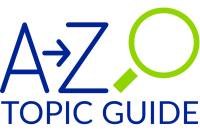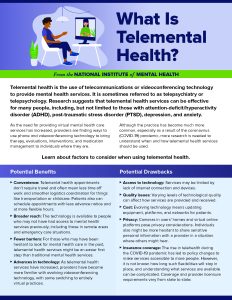Topic-Specific Resources Listed from A-Z
Older Adults and Mental Health
The following article on Anxiety Disorders is from the National Institute of Mental Health (NIMH). While this material has been expert-reviewed, it is not NIMH or MHANYS intention to provide specific medical advice. Both MHANYS and NIMH advise readers to consult with a qualified health care provider for diagnosis, treatment, and answers to personal questions.
Why is it important to take care of our mental health as we age?
As people age, they may experience certain life changes that impact their mental health, such as coping with a serious illness or losing a loved one. Although many people will adjust to these life changes, some may experience feelings of grief, social isolation, or loneliness. When these feelings persist, they can lead to mental illnesses, such as depression and anxiety.
Mental health is important at every stage of life. Effective treatment options are available to help older adults manage their mental health and improve their quality of life. Recognizing the signs and seeing a health care provider are the first steps to getting treatment.
Mental health includes emotional, psychological, and social well-being. Learn more about taking care of your mental health.
What are symptoms of mental disorders in older adults?
- Noticeable changes in mood, energy level, or appetite
- Feeling flat or having trouble feeling positive emotions
- Difficulty sleeping or sleeping too much
- Difficulty concentrating, feeling restless, or on edge
- Increased worry or feeling stressed
- Anger, irritability, or aggressiveness
- Ongoing headaches, digestive issues, or pain
- Misuse of alcohol or drugs
- Sadness or hopelessness
- Thoughts of death or suicide or suicide attempts
- Engaging in high-risk activities
- Obsessive thinking or compulsive behavior
- Thoughts or behaviors that interfere with work, family, or social life
- Engaging in thinking or behavior that is concerning to others
- Seeing, hearing, and feeling things that other people do not see, hear, or feel
Help is available: If you are unsure where to go for help, ask a health care provider. Communicating well with your health care provider can improve your care and help you come up with a treatment plan that works for you. Read about tips to help prepare and get the most out of your visit. For additional resources, including questions to ask your health care provider, visit the Agency for Healthcare Research and Quality.
If you or someone you know is struggling or having thoughts of suicide, call or text the 988 Suicide and Crisis Lifeline at 988 or chat at 988lifeline.org. In life-threatening situations, call 911.
Health hotlines
- 988 Suicide & Crisis Lifeline: The Lifeline provides free and confidential emotional support to people in suicidal crisis or emotional distress 24 hours a day, 7 days a week, across the United States. Call or text 988 to connect with a trained crisis counselor. Support is also available via live chat. Para ayuda en español, llame al 988.
- Veterans Crisis Line: This helpline is a free, confidential resource for veterans of all ages and circumstances. Call 1-800-273-8255, press 1; text 838255; or chat online to connect with 24/7 support.
- Disaster Distress Hotline: This helpline from the Substance Abuse and Mental Health Services Administration provides immediate crisis counseling for people experiencing emotional distress related to any natural or human-caused disaster. The helpline is free, multilingual, confidential, and available 24 hours a day, 7 days a week. Call or text 1-800-985-5990.
- NIH Health Info Lines
Federal resources
- Depression Is Not a Normal Part of Growing Older: This Centers for Disease Control and Prevention webpage describes signs of depression and how depression can be different for older adults.
- Healthy Aging: This U.S. Department of Health and Human Services webpage lists links to health resources and services for older adults.
- National Institute on Aging (NIA): Health Topics: NIA offers health information on various topics, including depression.
- Older Adult Mental Health: The National Library of Medicine’s MedlinePlus offers resources on aging and mental health (en español).
- Resources for Older Adults: The Substance Abuse and Mental Health Services Administration offers publications and digital products for and about older adults.
Handouts
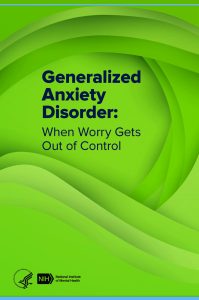 English / Español
English / Español 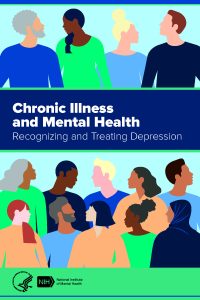 English / Español
English / Español
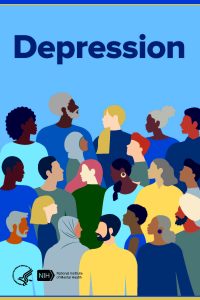 English / Español
English / Español 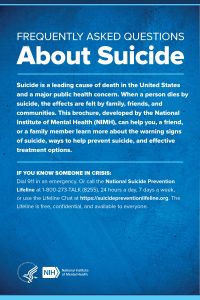 English / Español
English / Español
Mental Health Association in New York State (MHANYS) has additional resources that can be accessed through its main website. These resources include links to advocacy and policy work, school-based programs, mental health wellness training programs and more.
MHANYS
mhanys.org
Advocacy and Policy
mhanys.org/advocacy-policy
Mental Health Community Partners
mhcommunitypartners.org
CarePath™
mhanys.org/carepath
SMHRT: Family Education
https://www.mentalhealthednys.org/family-education-webinar-series/
Data Source
National Institute of Mental Health: Mental Health Information Health Topics www.nimh.nih.gov/health/topics
